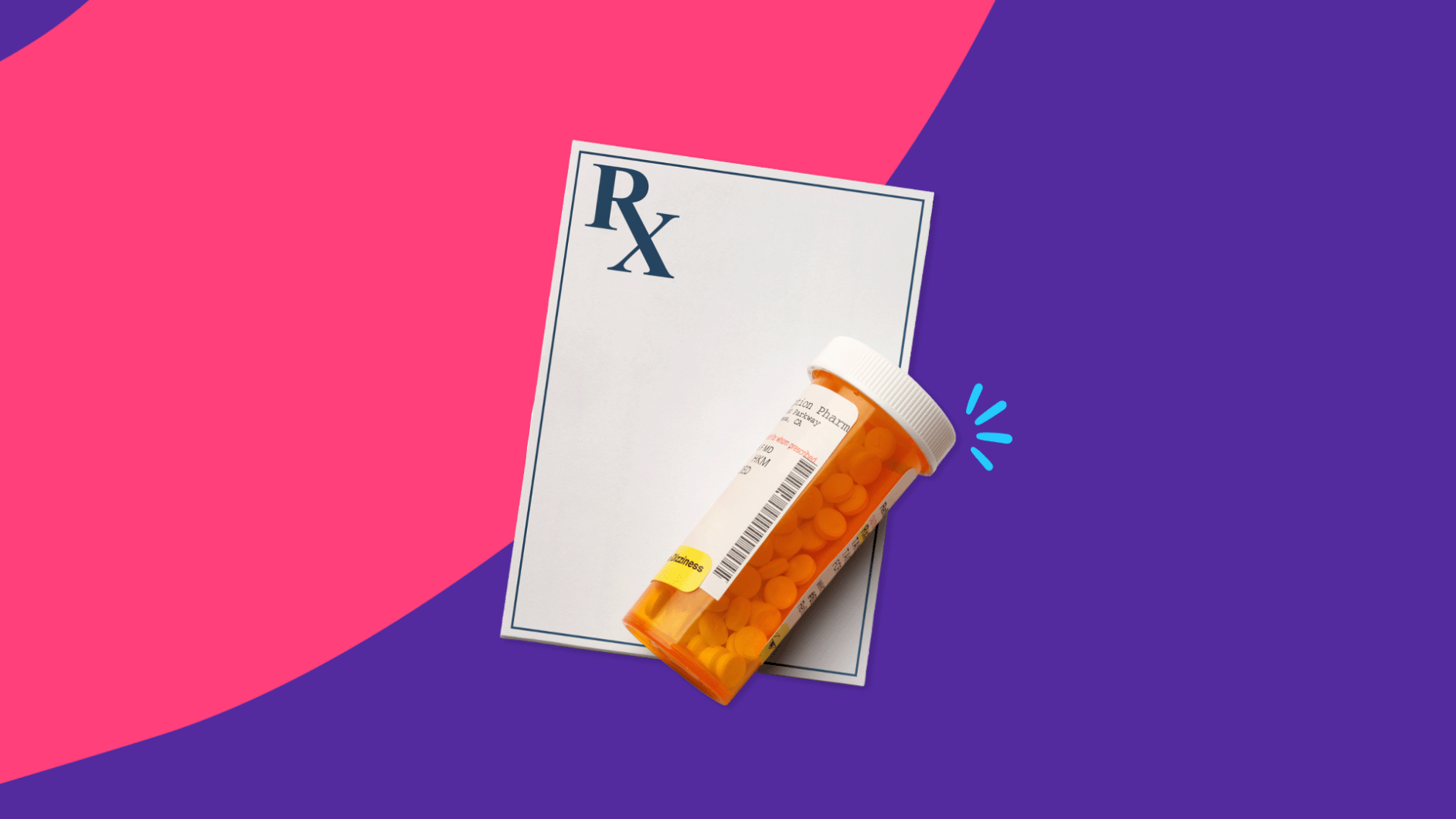Key takeaways
Losartan, known by the brand name Cozaar, is a prescription drug approved by the U.S. Food and Drug Administration (FDA) to treat high blood pressure and kidney problems. Losartan can also help reduce the risk of strokes and heart attacks. Losartan is classified as an ARB that relaxes the blood vessels to allow blood to flow more freely.
Losartan has the potential to cause low blood pressure (hypotension) and high potassium levels (hyperkalemia), especially when taken with other medications.
Drugs that may interact with losartan include nonsteroidal anti-inflammatory drugs (NSAIDs), angiotensin-converting enzyme (ACE) inhibitors, potassium-sparing diuretics, and beta blockers.
Be aware of signs of possible interaction with losartan, such as rapid or irregular heartbeat, heart palpitations, chest pain, and muscle weakness. If you experience any of these symptoms, contact your healthcare provider immediately.
Consult a healthcare provider before starting treatment with losartan and discuss your current medications, other medical conditions, and allergies.
Drug interactions | Food interactions | Other interactions | Avoiding interactions | When to see a doctor
Losartan is a generic medication often prescribed for treating high blood pressure (hypertension) and kidney problems, including kidney damage due to diabetes. It belongs to a class of drugs called angiotensin II receptor blockers (ARBs), which relax blood vessels to help lower blood pressure. By lowering blood pressure, losartan can also help reduce the risk of various cardiovascular events, such as strokes and heart attacks.
Although losartan is considered relatively safe and effective, drug interactions are possible. Taking losartan with certain medications and foods may affect how well losartan works and increase the risk of adverse effects. Because interactions can range from mild to severe, you should consult your healthcare provider and be aware of the possible scenarios. Read on to learn more about losartan interactions.
RELATED: Losartan side effects and how to avoid them
Losartan-drug interactions
Losartan can interact with several medications, both prescription and over-the-counter. Here are some common drugs that may interact with losartan and cause potential complications.
Diuretics
Potassium-sparing and loop diuretics manage conditions like heart failure and high blood pressure. When combined with losartan, there is an increased risk of high potassium levels because of its effects on retaining potassium. Potassium levels may need to be monitored regularly while taking losartan with these diuretics.
Examples of potassium-sparing diuretics include:
- Aldactone (spironolactone)
- Inspra (eplerenone)
- Dyrenium (triamterene)
Examples of loop diuretics include:
- Lasix (furosemide)
- Bumex (bumetanide)
Beta blockers
Beta blockers are typically prescribed for heart conditions, high blood pressure, and certain heart rhythm disorders. Combining losartan with beta blockers can increase blood pressure-lowering effects and potassium levels. Examples of beta blockers include:
- Lopressor, Toprol XL (metoprolol)
- Inderal (propranolol)
- Tenormin (atenolol)
Calcineurin inhibitors
Calcineurin inhibitors are immunosuppressant drugs often used in people who have received an organ transplant to prevent rejection. These drugs can interact with losartan, potentially leading to high potassium levels in the blood. A healthcare provider may recommend adjusting the dose of losartan or monitoring kidney function to prevent serious side effects. Examples of calcineurin inhibitors include:
- Neoral, Sandimmune (cyclosporine)
- Prograf (tacrolimus)
Lithium
Losartan may increase lithium levels in the blood, which can lead to lithium toxicity. Symptoms of lithium toxicity include tremors, dizziness, and confusion. Healthcare providers may recommend regular checkups to monitor lithium levels while using losartan. In some cases, dosages will need to be adjusted.
Non-steroidal anti-inflammatory drugs (NSAIDs)
Using losartan with NSAIDs can reduce the blood pressure-lowering effects of losartan and lead to kidney problems. Your healthcare provider may choose an alternative pain reliever or adjust your losartan dose when using it with NSAIDs. Examples of NSAIDs include:
- Advil, Motrin (ibuprofen)
- Aleve, Naprosyn (naproxen)
- Celebrex (celecoxib)
- Mobic (meloxicam)
ACE inhibitors
ACE inhibitors are used to treat high blood pressure and heart failure. Losartan and ACE inhibitors have similar effects, and combining them may increase the risk of low blood pressure or kidney problems. Examples of ACE inhibitors include:
- Prinivil, Zestril (lisinopril)
- Vasotec (enalapril)
- Altace (ramipril)
Other ARBs
Combining losartan with other ARBs can lead to an increased risk of low blood pressure, kidney problems, and high potassium levels. Examples of other ARBs include:
- Diovan (valsartan)
- Atacand (candesartan)
- Avapro (irbesartan)
Tekturna (aliskiren)
People with diabetes or kidney problems should not take losartan with aliskiren, as the combination can increase the risk of kidney problems, low blood pressure, and high potassium levels. Discuss with your doctor the potential risks and benefits of using losartan with aliskiren, as they may suggest an alternative medication.
This is not a complete list of losartan interactions, and you should communicate with your healthcare providers about all prescription medications you take.
Losartan-food interactions
Losartan can be taken with or without food. However, taking losartan with certain foods and beverages like grapefruit juice, alcohol, and potassium-containing foods may increase the risk of side effects.
Grapefruit juice
Grapefruit juice may affect the metabolism of some medications because it blocks certain enzymes in the liver. Losartan is converted to its active metabolite in the liver. Drinking grapefruit juice can interfere with this conversion process, potentially reducing the effectiveness of losartan. Therefore, avoiding or limiting the consumption of grapefruit juice while on losartan is recommended.
Alcohol
Medical professionals recommend using caution when consuming alcohol with blood pressure-lowering medications. Alcohol has the potential to increase or lower blood pressure, which may increase or decrease the blood pressure-lowering effects of losartan. For example, if you drink while taking losartan, you might feel dizzy or lightheaded if your blood pressure drops too low. To make sure the medicine does its job, it’s a good idea to cut back on alcohol or skip it altogether.
Potassium-containing foods
Eating a potassium-rich diet with losartan may lead to high potassium levels in some people. Therefore, some people may need to use caution when eating salt substitutes or potassium-rich foods with losartan. For example, people with heart failure, a history of high potassium levels, or reduced kidney function may need to monitor their diet while taking losartan. Potassium-rich foods may include:
- Bananas
- Coconut
- Beans
- Tomatoes
- Spinach
- Avocados
While losartan can be taken with or without food, you may want to be mindful of consuming certain foods and beverages. Consult your healthcare provider for medical advice on losartan and food interactions.
Other losartan interactions
In addition to prescription medications, losartan may interact with certain supplements and herbal remedies. For example, taking losartan with potassium supplements could increase the risk of hyperkalemia.
Herbal supplements that contain potassium include:
- Chicory
- Ginseng
- Lemongrass
- Water lotus
- Mugwort
Let your healthcare provider know about any dietary or herbal supplements you take before starting treatment with losartan.
Other considerations
In addition to the interactions mentioned above, several precautions should be considered when using losartan, such as:
- Pregnancy: Losartan can cause harm to an unborn baby if used during pregnancy. Pregnant women or those planning to become pregnant should consult their healthcare provider before using this medication.
- Hypersensitivity: People who have had an allergic reaction to losartan or its components in the past should avoid using the medication.
- Hypotension: Losartan may cause low blood pressure. Regular monitoring of blood pressure during treatment should be done.
- Kidney function: Losartan may affect kidney function. It’s recommended to regularly monitor kidney function while using this medication, especially for those with kidney disease or diabetic nephropathy.
How to minimize losartan interactions
In many cases, losartan interactions are entirely avoidable. It just takes planning, understanding the potential culprits, and working with your healthcare provider. Here’s an outline of potential ways to minimize losartan interactions.
- Consult your healthcare provider: Discuss your medical history and current medications with a healthcare professional before taking losartan. They can determine the potential risks and benefits, especially if you have existing medical conditions or are taking other prescription drugs.
- Keep a medication list: Share this list with your healthcare provider, who can identify potential interactions and adjust medications as needed. They might change dosages, discontinue medications, or recommend safer alternatives. Write down a list of all the medications you take, including:
- Prescription medications
- Over-the-counter drugs
- Herbal supplements
- Vitamins and minerals
- Know the warning signs: Knowing potential signs of drug interactions can help you take action as needed. Some common warning signs include:
- Unexpected side effects
- New symptoms or worsening of existing symptoms
With these guidelines, you may be able to reduce the chance of losartan interactions. That way, you can take advantage of the benefits of the drug. Remember to communicate with your healthcare provider and let them know about any changes in your health or medications.
When to talk to a healthcare provider about losartan interactions
Talk to a healthcare provider about losartan interactions when they first prescribe the medication. If you have concerns about drug interactions, you can also contact your local pharmacist. In most cases, you’ll want to discuss losartan interactions with your healthcare provider if you:
- Take any prescription or over-the-counter medicines
- Use any dietary or herbal supplements
- Have a history of medical conditions
- Experience persistent or worsening side effects
The information provided is meant for informational purposes and should not be considered a substitute for professional medical advice. Always consult a healthcare professional before making any decisions regarding your health and treatment.
When discussing losartan interactions with your healthcare provider, mention any other medications you’re taking, any allergies or adverse reactions you’ve experienced in the past, and whether you’re pregnant or breastfeeding.
Sources
- Lithium toxicity, National Library of Medicine (2023)
- FDA drug safety communication: New warning and contraindication for blood pressure medicines containing aliskiren (Tekturna), U.S. Food and Drug Administration (2021)
- Grapefruit, Medline Plus (2023)
- Effect of alcohol on blood pressure, Cochrane Library (2020)
- Potassium, Harvard School of Public Health (2023)
- Herbal supplements and kidney disease, National Kidney Foundation (2023)
- Losartan, Medline Plus (2018)
- Diabetic nephropathy, John Hopkins Medicine (2023)
- Drug interactions: What you should know, U.S. Food and Drug Administration (2013)











